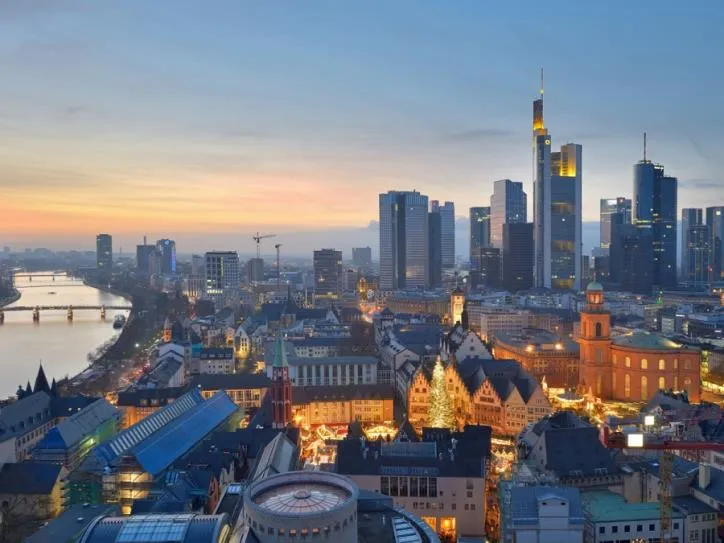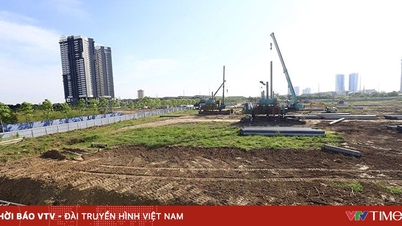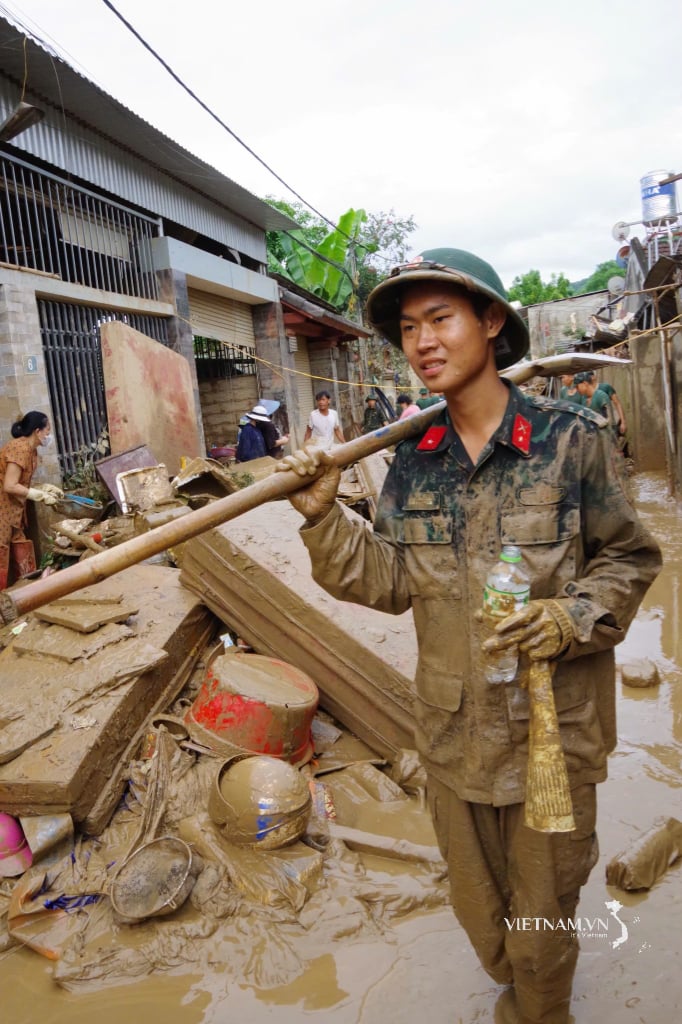The gentrification wave and Airbnb
If you live near public transportation, parks, resorts, train stations, cultural centers... these things are appearing or will soon appear: new cafes, restaurants, gyms, large stores, offices... It is part of the urban upgrading process called "Gentrification" - the phenomenon of renovating an urban area to increase real estate value. Along with that, short-term rental services Airbnb have attracted wealthy residents and well-off businesses but pushed low-income residents out of the city center.
The coastal region of Comporta (Portugal), which used to be a peaceful paradise for locals, is now becoming a playground for the super-rich. Hotels, villas, golf courses... are springing up densely on the pine forests and coastal sand dunes. Locals can no longer afford the skyrocketing housing prices and living costs.
"This seemingly endless real estate fever has led to crazy prices. And this madness has pushed a large part of the population out. An abandoned house that could not be lived in, 20 years ago could be sold for 20,000 euros, now it is worth a million euros," said Jacinto Ventura, president of the non-profit association Casa do Povo de Melides.
Mexico City, one of Latin America’s largest cities, is becoming a favorite destination for digital nomads, creatives and the global middle class. These people, paid in dollars or euros, have 5-10 times the purchasing power of locals. They are willing to pay high rents through Airbnb services, causing housing prices to increase by 8% per year. Local residents are being forced out of their homes. This has sparked a strong resistance movement from residents, who demand concrete actions from the city government to control rents and redistribute urban space.

After the 2008 financial crisis, international investment funds bought houses en masse in many European countries at low prices.
Housing crisis in Europe
After the financial crisis of 2008, international investment funds bought up houses in many European countries at cheap prices, then increased the rents or converted them into short-term tourist apartments. As a result, in just one decade, house prices in Europe increased by an average of 53%. Rents also increased, making housing a real crisis.
In the Dutch legislative elections last month, polls showed that housing was the number one issue voters were concerned about, ahead of other hot topics such as immigration and the cost of living. And in fact, one of the parties with the strongest commitment to housing solutions won the election.
Mr. John S. - a Dutch citizen shared: "The Netherlands currently lacks up to 400,000 houses. Many people, especially young people, cannot buy a house, so they still have to live with their parents."
Ms. Anne V. - a Dutch citizen confided: "In the cities, housing prices are too high. It is very difficult to find a house. Houses are scarce, and newly built projects are high-end. Teachers like me do not earn much money, it is very difficult to find a house in the city."
Housing has become a problem across the European Union, not just in the densely populated Netherlands. A coalition of mayors for housing from 17 European cities has been set up to discuss the housing infrastructure problems facing urban areas.
Mr. António Costa - President of the European Council commented: "It is clear that now, from Dublin to Athens, we are facing a multifaceted housing crisis. We are not only lacking accommodation for the homeless, for low-income earners, but also for middle-income earners and especially for young people."
At a meeting a month ago, the coalition of mayors on housing submitted many proposals to European leaders, including calling on the EU to invest 300 billion euros and use unspent funds to support the construction of affordable housing, and asking the EU to loosen regulations on state aid so that cities can support more than just low-income groups to buy houses.

Many governments are determined with the goal: "Houses are for living, not for speculation"
Balancing urban development and ensuring housing for residents
Talking about the solution to the problem of urban upgrading and housing crisis, Dr. - Architect To Kien, Urban Planning and Design Expert at Eight Japan Company, Tokyo, Japan said: "Lessons from previous countries, especially Japan, Korea and Singapore, are worth referring to. Japan handles this phenomenon in a delicate way. They do not consider urban reconstruction as "demolishing and rebuilding", but as a process of "layering": new layers are placed on top of old layers, preserving the old structure. In Tokyo, areas such as Shimokitazawa or Kichijoji... are areas that welcome a wave of young and creative residents, but the government uses zoning to limit height, encourage housing models combined with business, and at the same time support old tenants to repair their houses instead of having to move. The government is also about to launch a rental housing program with prices about 20% lower than the market price so that middle-class households can continue to stay and maintain social diversity in the center. The Japanese philosophy is quite clear: not just physical change, but the perpetuation of urban communities so that old neighborhoods are not wiped out.
South Korea has also seen rapid gentrification, especially in Seoul, in areas like Itaewon and Ikseon-dong. Now, they have adopted a “mixed development” model, which stipulates that a certain percentage of original residents and businesses are retained, while providing rental assistance and vocational training to help them adapt to the new space.
Singapore has a whole system of social housing, public housing in HDB accounts for 80% of the housing fund. When rebuilding, residents have the right to resettle on the spot, keeping the old community intact, avoiding disruption and the situation of the poor being pushed away from the center.
The common point of these three countries is the regeneration of communities, not just the reconstruction of buildings. Because a progressive urban area is not only measured by the number of high-rise buildings, but also by whether the old communities can still live, interact and continue to tell the story of the place they have been attached to for a long time to their descendants.
Many major cities are now beginning to recognize the need to limit the tourism and real estate markets. Amsterdam, Vienna, and New York have limited the number of days Airbnb rentals can be booked. Some places have banned the opening of new short-term rentals, banned evictions, and prioritized the rebuilding of social housing in the city center. From Latin America, Europe, to Asia, many governments are determined to achieve the goals: "Homes are for living, not for speculation" and "Tourism is for exploring , not displacing local people".
Source: https://vtv.vn/nang-cap-do-thi-va-cuoc-khung-hoang-nha-o-100251110105820055.htm


![[Photo] Chu Noodles - the essence of rice and sunshine](https://vphoto.vietnam.vn/thumb/1200x675/vietnam/resource/IMAGE/2025/11/11/1762846220477_ndo_tl_7-jpg.webp)



![[Photo] Prime Minister Pham Minh Chinh chairs a meeting on housing policy and the real estate market.](https://vphoto.vietnam.vn/thumb/1200x675/vietnam/resource/IMAGE/2025/11/11/1762838719858_dsc-2107-jpg.webp)






























































































![Dong Nai OCOP transformation: [Article 4] Reaching national standard products](https://vphoto.vietnam.vn/thumb/402x226/vietnam/resource/IMAGE/2025/11/11/1762825820379_4702-cac-san-pham-trai-cay-chung-nhan-ocop-nongnghiep-174649.jpeg)


![Dong Nai OCOP transition: [Article 3] Linking tourism with OCOP product consumption](https://vphoto.vietnam.vn/thumb/402x226/vietnam/resource/IMAGE/2025/11/10/1762739199309_1324-2740-7_n-162543_981.jpeg)






Comment (0)